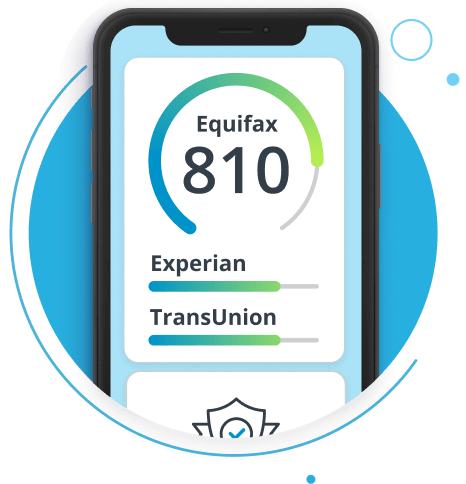Does Refinancing Your Mortgage Impact Your Credit Scores?


Highlights:
- Refinancing can be a great opportunity to change the terms of your loan.
- Applying for loan refinancing can affect your credit, so do your research beforehand.
- Don't skip payments while waiting for your refinancing approval.
Refinancing a mortgage has become a popular option these days. With refinancing, you take out a new home loan and use that loan to pay down the balance on your original mortgage. Refinancing can be a great opportunity to change the terms of your loan to shorten it. You can also use it to lock in a lower interest rate. If interest rates have dropped since you took out your mortgage, refinancing can help.
Despite the benefits, refinancing could have a negative impact on your credit scores. Here are 3 things to know about your credit scores and credit reports before refinancing.
1. A refinance can appear on your credit reports as a new loan
When you refinance your mortgage, you're paying off the old loan in full and opening a new one. The duration of your credit history is one of the factors included in your credit scores. If your original mortgage is your oldest account, closing it for a new loan may impact your credit scores. As your other accounts age, the impact of a refinance on your credit scores will generally lessen.
2. Several credit inquiries can affect your credit report
When you refinance, look at different lenders to find the best loan terms possible. Remember that when you apply for a loan, the potential lender reviews your credit history. This results in a “hard inquiry” on your credit reports. Hard inquiries can stay on your credit report for up to two years. But, they typically only affect your credit scores for one year. To reduce the number of hard inquiries on your credit reports, research lenders and rates. Then, make a short list of the ones with which you'll apply.
Before you start shopping, pull a copy of your credit reports to get a sense of how you'll look to potential lenders. Potential lenders may use your credit history to help make lending decisions. These companies want to know how likely you are to pay the money they lend back as agreed. Make sure all the information on your credit reports is accurate before you apply for a refinance.
Create a myEquifax™ account to get free Equifax® credit reports. You can also get your free weekly credit reports from www.annualcreditreport.com. They pull data from the three nationwide credit reporting agencies (NCRAs) — Equifax®, Experian® and TransUnion®. If you find inaccurate information on your credit report, dispute the information you believe to be inaccurate or incomplete.
3. Skipping mortgage payments during the refinancing process can damage your credit scores
Refinancing your mortgage may take longer than you expect. Don't count on the process closing by a certain month. Some borrowers have gotten into trouble by skipping a mortgage payment. They assumed their refinance would go through. A missed or late payment can impact your credit scores.
The best way to avoid delinquent payments is to stay in constant contact with your lenders. Set reminders for yourself to avoid missing important due dates. Make payments toward your original mortgage until your refinance is complete. Remember that payment history is the largest part of your credit scores. Late payments may remain on your credit reports for up to seven years. But, they tend to have less influence on your credit scores as time passes. This is especially true if it's a one-time mistake.
After refinancing, it may take several months for the new account to appear on credit reports. If you give it time and the loan still doesn't show up, make sure your lender is reporting your payments to the NCRAs. The refinancing process has some impact on your credit scores. How you handle the new loan with on-time payments will be more important in the long term.

Don't wait another day to build your credit confidence. With Equifax Complete™ Premier, know where you stand with access to your 3-bureau credit report.



